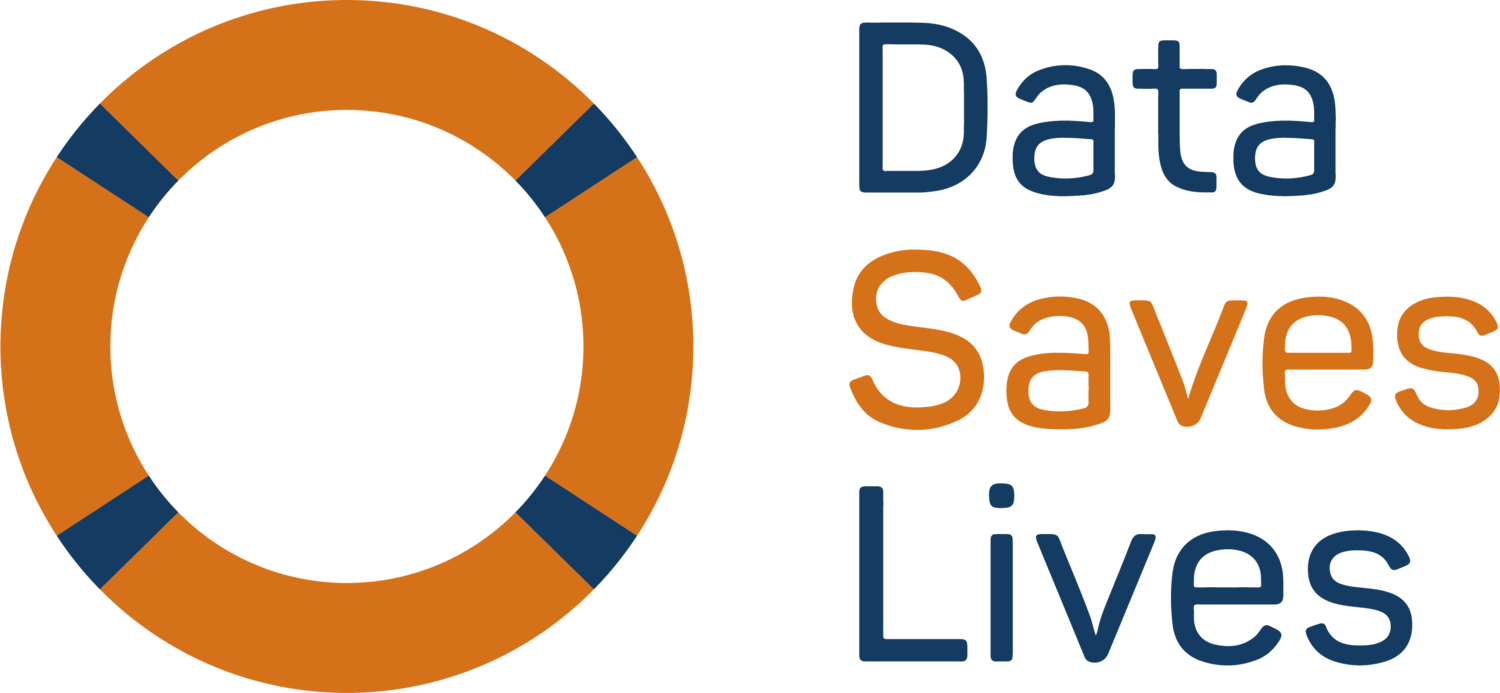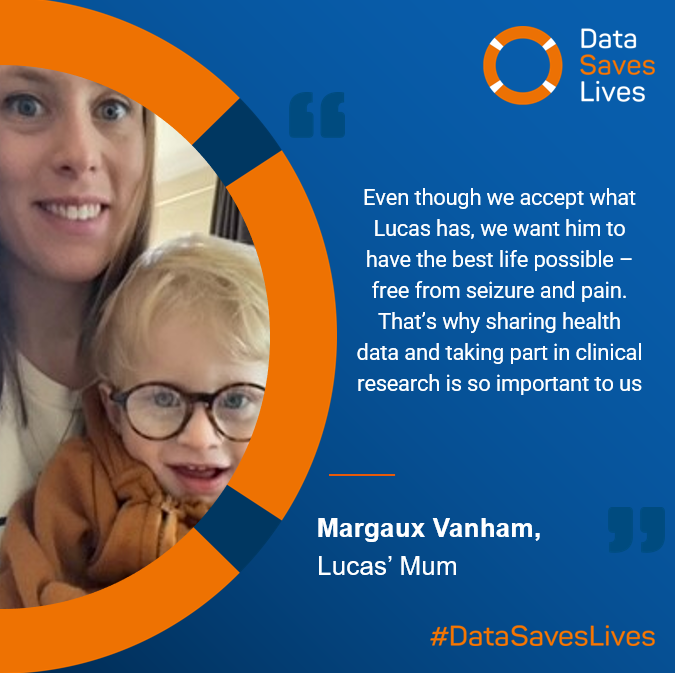‘Even though we accept what Lucas has, we want him to have the best life possible – free from seizure and pain. That’s why sharing health data and taking part in clinical research is so important to us’
We spoke with Margaux Vanham, whose son, Lucas, was diagnosed with the rare disease Angelman syndrome. Margaux talked us through his journey to diagnosis, which was eventually reached in November 2022, and why supporting research studies gives patients and their families hope for the future.
As we sat down with Margaux and her sister, it was easy to get side-tracked by the sweet and inquisitive toddler running around the room smiling and playing with his toys. As Lucas squealed with laughter throughout our conversation, it’s hard to imagine some of the challenges he faces living with this rare genetic disease, which is often characterised by delayed development and speech, problems with balance, intellectual disability and, in some cases, seizures.
‘When we finally found out I felt relief’
Margaux started by telling us that it took over a year to receive the diagnosis – ‘which was quite late’, compared to others living with the condition. The first sign came at six weeks old when he hospitalised after experiencing reflux and sleep apnoea. Like all concerned parents, Margaux sought medical advice, but when neurology tests came back clear, life just ‘carried on as normal’. It wasn’t until Lucas was unable to meet some of the anticipated developmental milestones that parents anxiously wait for, that the family sought further support from their doctor. Initially thinking that he could be autistic, they spoke with various experts but were eventually told that his symptoms did not match up with the typical hallmarks of autism. Knowing that something was wrong, but without any conclusive tests to go by, felt very distressing for the family. In addition, they were living in central Africa at the time, which posed its own challenges in terms of structure and access to healthcare. This meant that navigating care and getting the right support was at times difficult.
After moving back to Brussels, Lucas started experiencing small seizures, known as absences and was subsequently diagnosed with epilepsy and Global Development Delay (GDD). However, it wasn’t until a certain neurologist connected the dots on Lucas’ full medical history that they suspected he might have Angelman syndrome. A genetic test was finally carried out and confirmed the suspicion. Margaux describes the news as a ‘relief’ but admits that to others, including healthcare professionals, it was a shock, especially as the disease is so rare and not well understood.
‘Sharing experiences with others has been a powerful source of information’
Margaux found the Angelman Syndrome Foundation a great resource to learn about the condition and to help the family come to terms with the diagnosis. She went on to explain that connecting with others via social media has been the biggest source of support, allowing them to share experiences, advice and solidarity with others going through a similar situation. She told us that these first-hand experiences from members of the online community have been a lifeline, especially as health data and clinical guidelines are scarce and inconsistent.
“Being part of research projects brings us hope”
Lucas is currently enrolled in a behavioural study in Liège, Belgium which looks to examine his functionality and progress over time, including assessing the emotional impact the condition has on families. This longitudinal study aims to evaluate health data from a large cohort of patients to identify patterns and trends, which can be used to improve our understanding of this condition and identify key areas where support is needed.
In the future, the family plans to be involved in a clinical study, which is being run by Oxford University. Although logistically this will be a large undertaking for the family, it was an easy decision to make. Margaux explained that although they accept that Lucas will live with this condition his entire life, taking part in research and sharing clinical data will ultimately contribute towards progress, which could improve Lucas’ quality of life and those of others.
Patient communities are rich sources of data and information, especially in rare diseases such as Angelman syndrome. When health data is harnessed and shared, it can be used to increase our understanding of certain diseases, and in turn, improve the diagnosis journeys and care of more patients.
With special thanks to Margaux Vanham, her sister and Lucas for sharing their personal experiences with Data Saves Lives.
You can find out more about Lucas’ story here: @lucas_vanneer & @lucaslittlethings

